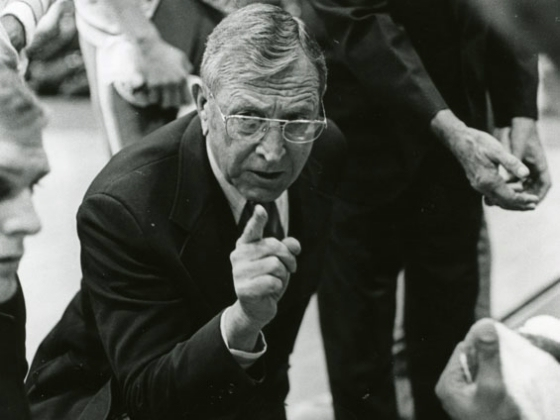 There’s no shortage of advice for that beleaguered, oft-criticized group of radio CEOs. Consultants, pundits, gurus, geniuses, futurists, naysayers, critics, know-it-alls, disgruntled ex-employees, and trolls apparently know exactly what radio’s leaders should be doing to address the myriad industry challenges, problems, and ills.
There’s no shortage of advice for that beleaguered, oft-criticized group of radio CEOs. Consultants, pundits, gurus, geniuses, futurists, naysayers, critics, know-it-alls, disgruntled ex-employees, and trolls apparently know exactly what radio’s leaders should be doing to address the myriad industry challenges, problems, and ills.
Unfortunately, this advice – sometimes well-meaning – often is contradictory, hypocritical, and just plain wrong-headed. But it keeps coming anyway – in trade publications, blogs like this one, and on social media – where there’s a torrent of criticism around the notion that “radio isn’t as good as it used to be.”
So in this atmosphere of unprecedented change , where disruption has left its mark on just about every industry, including video rentals, taxis, hotels, shopping malls, and the U.S. Postal Service, it’s easy to become distracted and confused by this environment of unbridled technological growth and the fire hose of innovation.
To whit, the strong, emphatic messages coming at the industry’s leadership may be well-meaning, but aren’t helpful in better understanding what’s happening and the actions that need to be taken. For example:
It’s all about content.
But don’t forget distribution.
You’d better think mobile first.
It’s not about reach, it’s about results.
No, it’s really about capturing attention.
If you’re a music station, you’re screwed.
It’s all about local.
You’ll survive by using the efficiency of networks, syndication, and voice tracking.
You need a strong local sales staff.
You’d better embrace programmatic.
What jobs are consumers hiring your station to do?
Are you in the radio business or the media business?
Or the entertainment business?
And on it goes.
So in times like these, who do you listen to? Who can you trust? Who has the perspective and vision that truly resonate?
Some of the best advice I’ve ever heard came from an old sports sage, named by ESPN as the “coach of the century.” The winner of 10 national basketball championships in a 12 year span, legendary UCLA basketball coach, John Wooden, was one smart and perceptive guy.
Many years ago, one of his former players, TV exec Andy Hill, wrote a book commemorating Coach Wooden’s core philosophy, “Be Quick, But Don’t Hurry.” Andy was a guest keynoter at a Jacobs Summit back in the R&R days in 2002. His background in broadcasting was helpful, but his deep knowledge of Wooden’s words and how they applied to business and life was what brought him to our attention.
Wooden’s words apply directly to what so many of radio’s decision-makers are faced with today. The media world is moving quickly – whether you’re in programming, sales, management, or you’re the owner or CEO.
 Although he passed away several years ago at the ripe old age of 99, Coach Wooden’s directive resonates today – it’s speaks to the importance of teamwork, effort, and balance. But so do the thousands of marketing books and the gurus that write them, purporting to have “the answer.”
Although he passed away several years ago at the ripe old age of 99, Coach Wooden’s directive resonates today – it’s speaks to the importance of teamwork, effort, and balance. But so do the thousands of marketing books and the gurus that write them, purporting to have “the answer.”
The secret of “Be quick, but don’t hurry” goes to the core of making smart decisions and running an organization wisely and with purpose.
It’s a fascinating bit of wisdom that has been interpreted in many different ways, but if you read the words of “Coach,” you clearly understand the tenet isn’t as contradictory as it may seem.
The “Be quick” part speaks to the notion that we’re playing a fast-moving game. In order to keep up and stay ahead, the people at the top of the organizational chart need to study, prepare, and stay balanced. Too often, paralysis sets in. There is so much to address and fix that it can become overwhelming. Thus, a sense of calm urgency is necessary in order to compete, but staying in control is a key factor in maintaining equilibrium and perspective.
For business leaders attempting to get their heads around a landscape that is unstable and ever-changing, it translates to constant preparation, an open mind to change, and a penchant for curiosity about the world around them.
And then there’s the “But don’t hurry part.” When you rush headlong into the “next big thing” or jump on an industry bandwagon, you run the risk of making mistakes – expensive mistakes. The fear of falling behind – or further behind – is something radio industry captains have to face. And often that translates into racing into something without the proper discipline, prep, and research. And that’s when games are won and lost.
“Be quick, but don’t hurry” is a complicated, even existential piece of advice that has Zen-like qualities. If it were an easy philosophy to adopt and put into practice, there would be more winning teams and organizations. Maintaining that balance of moving quickly but with purpose and an absence of haste is what propelled Wooden to all those national championships.
In today’s uncertain, disruptive environment, the stakes and pressures to succeed have never been higher. It requires that discipline and balance that Coach Wooden espoused.
It is not easy navigating those turbulent media waters and guide broadcast companies to success. Uncertainty abounds. But leadership that moves quickly but maintains a steady hand has an edge.
Be quick but don’t hurry.
- “Honey, would you please talk to Alexa?” - March 28, 2025
- On The Radio, It’s Always 5 O’Clock Somewhere - March 27, 2025
- Radio: Still King Of The Car? - March 26, 2025




Leave a Reply